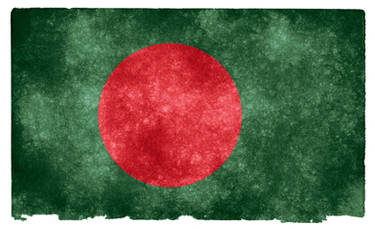ShopDreamUp AI ArtDreamUp
Deviation Actions
Literature Text
Phonology
Consonants:
/p t k q/ [p t k q]
/pʰ tʰ kʰ qʰ/ [ph th kh qh]
/b d g ɢ/ [b d g ġ]
/t͡s t͡ʃ/ [c č]
/t͡sʰ t͡ʃʰ/ [ch čh]
/d͡z d͡ʒ/ [dz dž]
/s ʃ h/ [s š h]
/z ʒ/ [z ž]
/m n ŋ/ [m n ŋ]
/r l/ [r l]
/j w/ [j w]
Vowels:
/i ʉ u/ [i y u]
/e ɵ o/ [e ø o]
/ɛ ɞ ɔ/ [ɛ ə ᴐ]
/a/ [a]
/iː ʉː uː/ [ii yy uu]
/eː ɵː oː/ [ee øø oo]
/ɛː ɞː ɔː/ [ɛɛ əə ᴐᴐ]
/aː/ [aa]
Vocalic harmony (front vs back, rounded vs unrounded).
Front: ʉ ɵ ɞ
Neutral: i e ɛ a
Back: u o ɔ
Phonotactics:
CVCCC
Accent:
Stress accent on first syllable.
Nouns
Morphemes:
[Root + Root's extension(s) + Possessor + Definiteness + Number + Case]
Case:
Nominative - mᴐŋɛ 'man'
Accusative -i/-j mᴐŋɛj 'man'
Genitive -n/-ɛn mᴐŋɛn 'of man'
Dative -am/-m mᴐŋɛm 'to/for man'
Ablative -at/-t mᴐŋɛt 'from man'
Instrumental -ɛɛ/-hɛ mᴐŋɛhɛ 'with man'
Locative -ec/-ːc mᴐŋɛɛc 'in/on man'
Definiteness:
Indefinite -eŋ/-ŋ mᴐŋɛŋ 'a man'
Definite proper -et/-t mᴐŋɛt 'the man'
Definite distant -eq/-q mᴐŋɛq 'that man'
Number:
Singular - mᴐŋɛ 'man'
Dual -r/-ɛr mᴐŋɛr 'two men'
Plural -k/-ɛk mᴐŋɛk 'men'
Possessor:
Singular / Plural
1. -ɛŋ/-ŋ mᴐŋɛŋ 'my man' / -ɛni/-ni mᴐŋɛni 'our men'
2. -ic/-jc mᴐŋɛjc 'thy' / -eche/-che mᴐŋɛche 'your man'
3. -u/-w mᴐŋɛw 'his/her/its' / -y/-j mᴐŋɛj 'their man'
Verbs
Morphemes:
[Negation] +[Root + Root's extension(s) + Voice + Aspect + Tense + Mood + Person]
Transitivity:
Intransitive -eš- eqheš- 'to eat'
Transitive - eqh- 'to eat'
Causative -ar- eqhar- 'to feed'
Aspect:
Imperfective - eqh- 'to eat'
Perfective -ta eqhta- 'to eat'
Perfect -su eqhsu- 'to have be eaten'
Prospective -ši 'to will be eaten'
Tense:
Non-past - eqh- 'to eat'
Past -l-/-ɛl- eqhl- 'to eat (in past)
Indicative - eqh- 'to eat'
Conditional -da- eqhda- 'would to eat'
Imperative -ii eqhii 'eat!'
Person:
Singular / Plural
1. -eŋ/-ŋ eqheŋ 'I am eating' / -ɛni/-ni eqhɛni 'We are eating'
2. -ec/-c eqhec 'Thou art eating' / -eche/-che eqheche 'You are eating'
3. - eqh 'He/She/It is eating' / -y eqhy 'They are eating'
Negation:
le eqheŋ 'I am not eating'
Participle:
Adjectival -pha eqhpha 'eating'
Adverbial -phᴐ eqhphᴐ 'eating'
Gerund/Infinitive:
-ɛth eqhɛth 'eating, to eat'
Adjectives
Degrees of comparison:
Positive - daag 'good'
Comparative -ᴐᴐr daagᴐᴐr 'better'
Superlative -ᴐᴐrah daagᴐᴐrah 'best
Adverbs:
Degrees of comparison:
Positive - daagᴐ 'well'
Comparative -ᴐᴐrᴐ daagᴐᴐrᴐ 'better'
Superlative -ᴐᴐrahᴐ daagᴐᴐrahᴐ 'best'
Numerals
Cardinal:
1. ᴐrhᴐ
2. igyt
3. muuru
4. nalgaw
5. šadžur
6. šaruŋ
7. amchas
8. urdun
9. tumpah
10. hathum
11. hathum ᴐrhᴐ
20. igyt hathum
21. igyt hathum ᴐrhᴐ
100. gildak
1.000. komplak
Ordinal -ca ᴐrhᴐca
Multiplicative -nuuŋ ᴐrhᴐnuuŋ
Reproductive -høø ᴐrhᴐhøø
Distributive -neež ᴐrhᴐneež
Fractional -haw ᴐrhᴐhaw
Pronouns
Personal pronouns:
Singular / Plural
1. ma 'I' / mak 'We'
2. šuu 'thou' / šuuk 'you'
3. øl 'he/she/it' / ølk 'they'
Prepositions
Locational:
hi 'in'
ahi 'on'
hu 'above'
hume 'under'
perk 'beside'
hɛme 'away'
beeme 'between'
ġahi 'behind'
hime 'out'
radme 'around'
tɛrɛk 'before'
hitɛɛŋ 'during'
thɛm 'after'
duhr 'through'
Other:
pɛs 'without'
waŋ 'with'
hitᴐw 'instead'
hitɛrk 'against'
newaŋ 'despite, though'
hidžaŋ 'along, according to'
ci 'as'
kyy 'like'
at 'from'
ta 'to'
Particles
Conjunctions:
Paratactical conjunctions:
ee 'and'
eena 'also'
hir 'or'
hide 'but'
cyn 'so'
nᴐq 'than'
Hypotactical conjunctions:
nahi 'to, for'
žarym 'although'
byym 'because'
eeme 'if'
haži 'that, providing'
Modifiers:
ᴐrhᴐᴐ 'only'
ᴐrhᴐme 'yet'
Polarity particles:
sa 'yes'
ne 'no'
Syntax
Word order:
SOV (Subject - Object - Verb)
Describing word - Described word
Copular verb:
hɛr- 'to be'
Word Formation
Derivational affixes:
Nominalizers:
Agentive / Related person -ɛdzi/-dzi pɛrq- 'to speak' → pɛrqɛdzi 'speaker' / bᴐġᴐ 'cow' → bᴐġᴐdzi 'cowman'
Place -ud pɛrq- 'to speak' → pɛrqud 'rostrum'
Diminutive -če sigi 'son' → sigiče 'little son'
Augmentative -aag gᴐŋɛ 'mountain' → gᴐŋaag 'grand mountain'
Related abstract -araw hadži 'brother' → hadžiraw 'brotherhood'
Instrument -tɛl gard- 'to destroy' → gardɛtɛl 'instrument for destroying'
Instance -aw pɛrq- 'to speak' → perqaw 'speech'
Adjectivizers:
Possessive / Affiliative -sor pard 'horse' → pardzor 'equine'
Originative -at dᴐŋgᴐr 'sky' → dᴐŋᴐrat 'celestial'
Similaritive -waad belin 'cat' → belinwaad 'felid'
Feature -ib jɛlɛ 'hair' → jɛlib 'hairy'
Privative ne-.-ib thᴐmph 'tooth' → nethᴐmphib 'toothless'
Comments2
Join the community to add your comment. Already a deviant? Log In
I started looking at this and thought, "Hold on, this can't be Proto-Uralic ... oh wait."


















